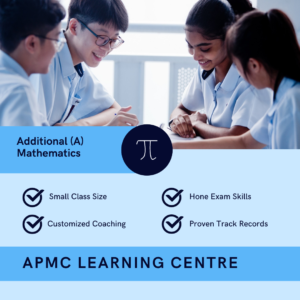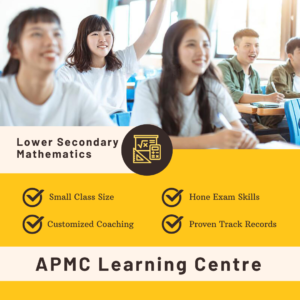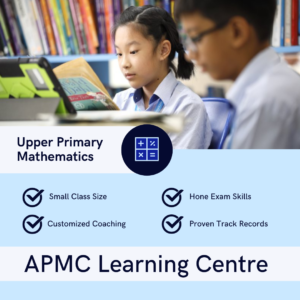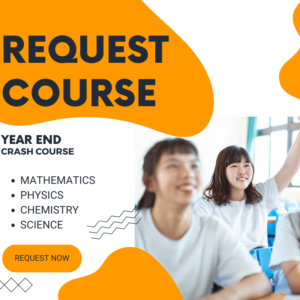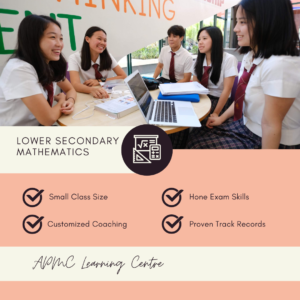Lower Secondary Science Tuition
Lower Secondary Science Tuition at APM Tuition aims to develop students’ scientific knowledge and understanding through the use of comprehensive curriculum materials. The programmes focus on developing higher-order thinking skills such as critical reasoning, logical deduction, and question analysis. On top of that, students are exposed to real-world problems that allow students to apply deep insights and appreciate the relevance of science in their daily lives
With a small class size of 6 (max 8), we ensure that every student receives our dedicated attention during the Science lesson. We champion consistency and active learning in students, equipping them with the skills and wits to carve out their edge and eventually Ace the examination.
Our lessons are customized to cater to different students’ needs. Students will receive tutorials aligned with their school syllabus to ensure a complete reinforcement of concepts and ample practice. Our notes, tutorials and practice papers are constantly updated with current questions to ensure students are equipped with the necessary skills and knowledge. Each set of notes and tutorials helps students develop fundamental techniques to solve routine questions, apply complex concepts and hone critical reasoning skills for tackling nonroutine problems that include real-world contexts.
Practice tests and mock practice papers that mirror actual examination conditions help give students the practice and confidence needed to ace their examinations. Revision packages are provided to help students consolidate their knowledge, review the typical questions for each topic and gain awareness to avoid and correct common mistakes through error analysis practices.
Secondary 1 Science
In Secondary 1, students will acquire knowledge of new topics such as Cell Structure and Organisation, Elements, Compounds and Mixtures, and Light, and learn to apply their insights in the disciplines of General Science, Biology, Chemistry and Physics. The topics taught in primary school will be covered in greater depth while students master new and more complex concepts to develop in-depth thinking skills.
Secondary 2 Science
In Secondary 2, students will continue to develop their scientific knowledge and understanding, as well as skills and dispositions, through topics such as Transport Systems in Humans, Chemical Bonding and the Current of Electricity. Students will continue to be trained in question analysis, answering techniques and higher-order thinking skills in the disciplines of Biology, Chemistry and Physics.
Both Secondary 1 and 2 Science courses are open to students taking both the O-Level and IP curricula.
Lower Secondary Science Tuition Curriculum
General Science
- Experimental Skills
- Experimental Design
- Laboratory Skills
- Laboratory Safety
Chemistry
- Elements, Compounds and Mixtures
- Separation Techniques
- Kinetic Particle Theory
- Atomic Structure
- Periodic Table
- Chemical Bonding (Ionic)
- Chemical Bonding (Covalent)
- Chemical Changes
- Chemical Formulae and Equations
- Acids and Bases
Biology
- Cell Structure and Organisation
- Movement of Substances
- Biological Molecules
- Enzymes
- Human Digestive System
- Transport System in Plants
- Transport System in Humans
- Human Sexual Reproductive System
- Ecology
- Diversity of Living Things*
- Photosynthesis*
- Respiration*
- Microorganisms*
- Hydroponics*
- Plant Tissue Culture*
Physics
- Exploring Diversity of Matter by Its Physical Properties
- Forces and Pressure
- Work, Energy and Power
- Turning Effect of Forces*
- Kinematics*
- Kinetic Model of Matter*
- Transfer of Thermal Energy
- Temperature and the Effects of Heat
- Light — Reflection
- Light — Refraction
- Light — Thin Lenses*
- Current of Electricity
- D.C. Circuits
- Practical Electricity
- Sound*
- General Wave Properties*
Note: * topics covered only by certain schools
Lower Secondary Science Tuition Highlights
Content
- Gain a comprehensive introduction to General Science topics such as Laboratory Safety and Apparatus
- Learn more in-depth scientific concepts from topics in Biology such as Cells and Movement of Substances
- Explore in-depth scientific concepts from topics in Chemistry such as Elements, Compounds and Mixtures, and Separation Techniques
- Master in-depth scientific concepts from topics in Physics such as Physical Quantities, and Mass, Weight and Density
- Learn more in-depth scientific concepts based on topics from Biology such as Human Reproduction
- Cover complex in-depth scientific concepts based on topics from Chemistry such as Acids and Bases
- Manage in-depth scientific concepts based on topics from Physics such as Current of Electricity
Skills and Techniques
- Acquire question analysis skills to interpret information and the provided data appropriately
- Gain exposure to questions that involve experimental skills such as identifying constant, changed or measured variables
- Learn how experiments are conducted and how to write and record experiment procedures
- Be able to compare the concepts and identify the similarities and differences between them. For example, learning about the similarity between a solution and a suspension, and the differences between a bacterium and a typical plant cell
- Cover biological drawing in greater detail and with more precision
- Learn answering techniques involving data analysis, experiment-based questions and application questions
- Gain the ability to use data presented in tables to plot graphs
- Use given data, presented on graphs, to analyse and explain concepts
- Learn how to explain the relationship(s) for concepts such as solubility of a compound or the effects of enzyme(s) at different pH levels in terms of the rate of reaction
- Practise questions on interrelated topics to gain competency in integrating scientific concepts
Revision and Reinforcement
- Focus on revising concepts and clarifying any existing misconceptions
- Learn to identify and avoid common pitfalls to prevent loss of marks in the exams
- Hone time management skills with multiple mock examination papers under exam conditions
- Get a systemic, topical-based revision of all topics, including common and challenging questions
Key Features of Our Science Tuition Classes
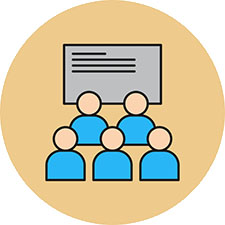
Small Class Size
2 to 8 students
Conducive Learning Environment

Customized Coaching
Reinforcing current school topics
1 to 1 Coaching
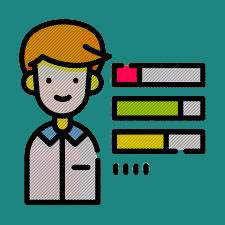
Hones Exam Skills
Time Management Skills
Exam Questions Training

Proven Track Records
> 86% Scoring A
> 93% improvement

Lesson Duration
2 Hrs Weekly (Sec & JC)
1.5 Hrs Weekly (Pri)
Hi, I got an A1 for Science and B3 for math. Thanks for helping me improve my grades!!
To Be Honest, I thought I was gonna fail math in eoy but I passed lol!
Secondary 2 Science, St Nicholas Girls School
Explore Other Subjects

Primary School
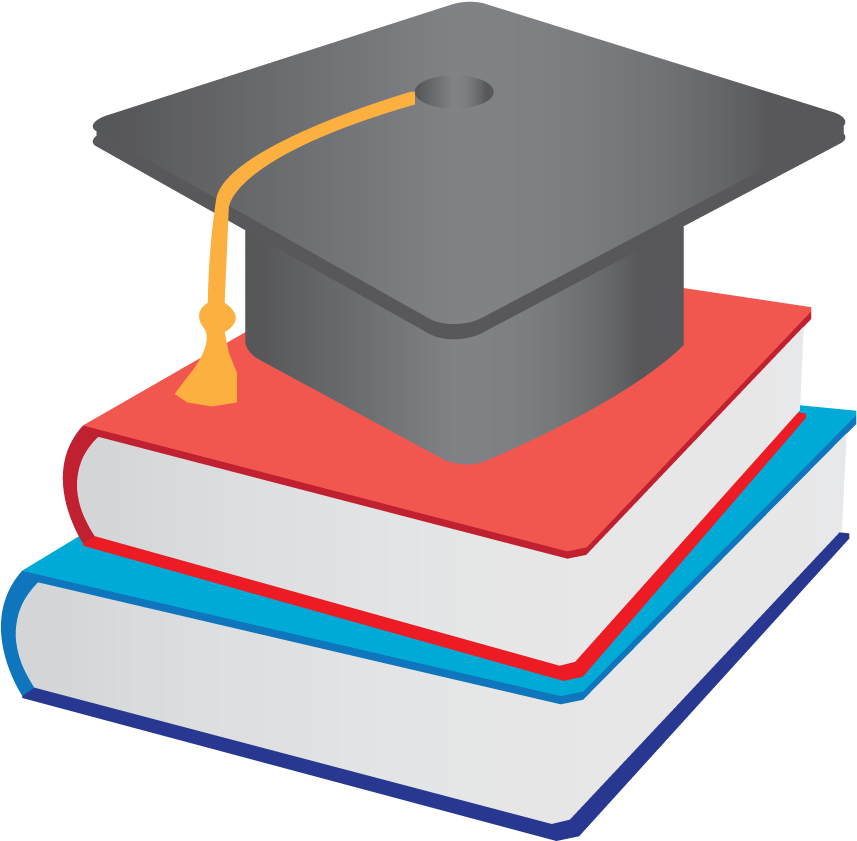
Secondary School


